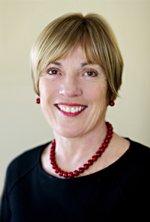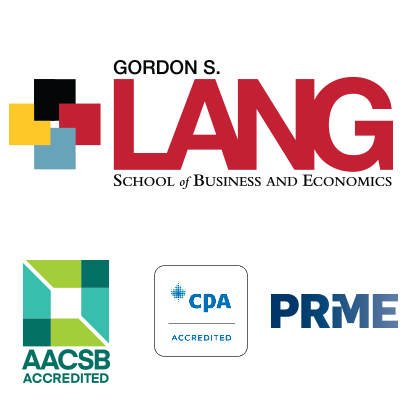
When Elaine Shantz started her search for executive education, she knew she wanted an opportunity that would be relevant to her role as a leader and complement the wealth of experience she already had. When she enrolled in the MA Leadership program at the University of Guelph, she found that education in a flexible format that encouraged networking among students and hands-on learning.
Now Shantz is hoping to provide future students with the same experience and educate them on leading in the senior care sector. This fall, she will assume the role of instructor for the Foundations of Leadership for Retirement and Senior Living course [1]. In this Q&A, she discusses her career in senior care and how she thinks students of this new course will benefit from the curriculum.
How did your career in senior care start? What sparked your interest in working in the industry?
I always tell people I had three lives - one in hospitality, one in banking and now in senior care. I was the VP of Operations for a large credit union when a senior care owner/operator approached me to consider an opportunity. After a great deal of discussion, I was convinced that leadership skills are transferable from one sector to another. You can learn the business aspect of an organization. I came to believe I could make a difference as a leader in the world of “care”.
What do you find most rewarding about your work?
There are so many aspects of my work that are incredibly rewarding. Making the difference in the life of a senior at a vulnerable stage in their life is so important. That said, at this stage in my career if I needed to pick one thing that was most rewarding it would be the privilege to mentor others by sharing my experience, and guiding and encouraging other leaders to grow in their knowledge, expertise and approach to care.
How did the idea to create an executive education course focused on senior living develop?
It is interesting how ideas percolate below the surface and then all of a sudden have the opportunity to bubble up and be embraced. I am part of the Quality Committee for the Ontario Long Term Care Association. We spend time discussing the future needs of the sector. In this growing sector, we are very aware of the need to develop leaders who are passionate about senior living. At the same time, I met Julia Christensen Hughes, dean of the College of Business and Economics. We embarked on an initial conversation of her dream to develop graduate studies in senior living. That one conversation led us to where we are today.
Why do you think education focused on senior care is important?
If we look at the demographics of our country we know this sector will explode over the next ten years. Senior living is a people intense sector. It requires leaders with unique abilities, who have the ability to understand, knowledge of the trends and legislation, and the skills to develop relationships critical to success. I believe leaders who take the time to educate themselves on this growing sector will develop a passion for the world of senior living.
Who would benefit from taking this course?
It is a course that will benefit any student who wishes to expand their horizons and potential opportunities, for example leaders from other sectors and industries who may wish to explore a new opportunity at some point in their career, those who are already in health care looking to expand their expertise, and those who work in a sector that touches on working with seniors (policing or other social services). Finally, there are those who are working in senior living who are hoping to work towards a promotion into a senior level position.
What do you think students will gain from taking this course?
It is our hope that students will enhance their professional knowledge as it applies to understanding the complexity of the senior population, begin to understand essential partnerships of the sector and gain insight into the unique challenges faced by a leader working with seniors. This course might also wet their appetites for what a career in senior living would look like.
What elements of the curriculum do you think will appeal most to students?
I would like to think that all aspects of the curriculum will appeal to the students. The hands-on approach will be exciting. We are taking a full day to tour several senior care continuums. This will include interviews with residents about the choices they made and an interview with the senior leadership team of the organization.
How do you feel your MA Leadership education contributed to your new role as faculty in this course?
Good question. I would like to think the fact that I took the MA leadership gives me a good understanding of what students are looking for in an elective. I have “been there” and can relate to what they are experiencing and hopefully what they are looking for in their course work.
